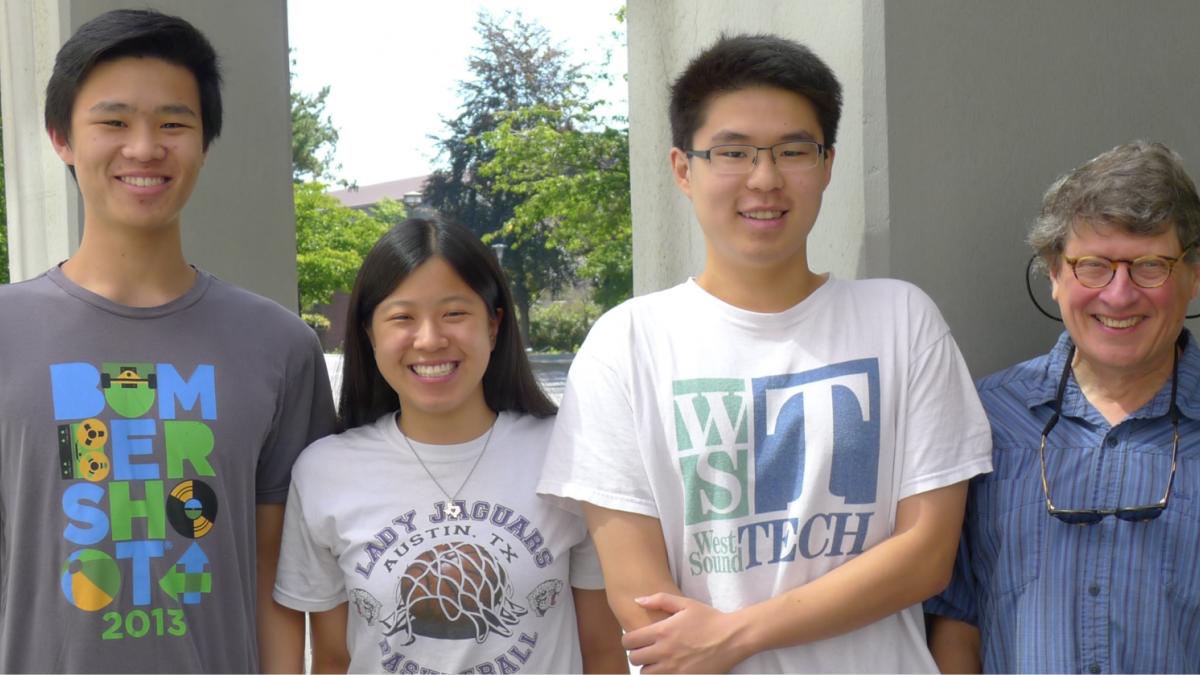
Dr. Ray Monnat (right) poses with former undergraduate lab members Jeffrey Ni, Amy Hong, and Thomas Liu (left to right). Photo courtesy of Ray Monnat
EDGE Member Dr. Ray Monnat was recently elected as a Fellow with the American Association for the Advancement of Science.
Recently, long-time EDGE member, Dr. Raymond Monnat, Jr., was elected to be a Fellow of the American Association for the Advancement of Science (AAAS). This honor is bestowed annually by the AAAS Council for “scientifically or socially distinguished efforts to advance science or its applications.”
Dr. Monnat heads a lab that looks at the genetic basis for disease in humans. Specifically, his team focuses on the ways that the genetic instability associated with rare inherited diseases like Werner syndrome, Bloom syndrome and Rothmund-Thomson syndrome promote developmental and acquired disease states such as cancer.
The Monnat lab uses a wide variety of techniques in their work including cell, molecular, computational and engineering approaches. This allows them to address basic mechanistic questions and analyze clinical material, as well as to build useful disease models that help move the science toward clinical trials.
Dr. Monnat says the next thing on the horizon for his lab is to work with colleagues in the UW Departments of Bioengineering and Genome Sciences "to develop a sophisticated dynamic model of the human DNA damage response from high-resolution imaging, phosphoproteomic and genomic data." The plan is to use the results from this collaboration to improve preclinical cancer models, with the ultimate aim of identifying and optimizing cancer treatment regimens.
He adds "The UW and Seattle have been an extraordinarily rich home for high-quality science: world-class talent is everywhere, and colleagues are never less than helpful, generous and collaborative."
Over the past decade, Dr. Monnat's work has been funded by the National Cancer Institute, the National Heart, Lung, and Blood Institute, the Bill and Melinda Gates Foundation, the Foundation of the National Institutes of Health, the Fanconi Anemia Research Fund, and the Butterfly Guild.

